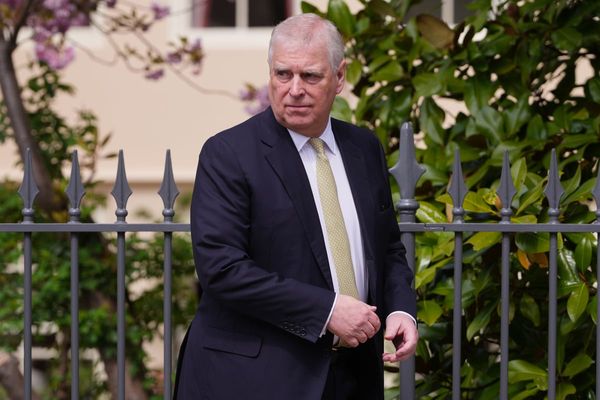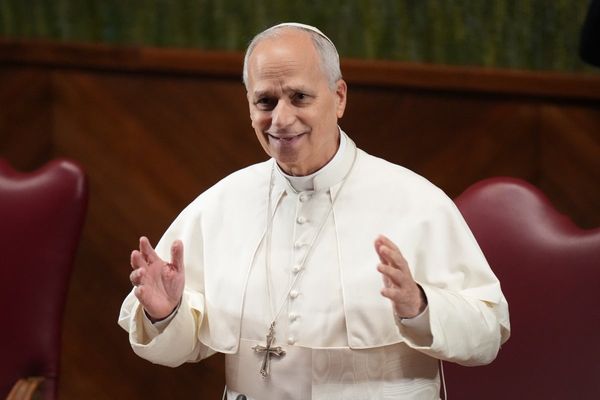
A Church of England bishop has said Shabana Mahmood’s comments on asylum seekers have shaken him “to the core” and argued people coming to the UK are being “scapegoated” for years of government policy failures.
Mahmood is expected to announce measures under which people’s refugee status would be reviewed every two and a half years and their wait for permanent settlement could be extended to 20 years. It also understood that people granted asylum could be returned if their country is deemed safe. It follows comments in which Mahmood said illegal migration was “tearing the country apart”.
The Rt Rev Dr Anderson Jeremiah, the bishop of Edmonton and the diocese of London’s lead for racial justice, said Mahmood’s comments “shook me to the core”.
He said: “We are scapegoating asylum seekers for the failures and political divisions caused by successive governments in the last 15 years – the failures of successive governments to address wealth inequality, funding for education, the cost of living and primary healthcare and infrastructure.
“Every day I meet homeless people who have fallen through the cracks in our system. And yet in singling out asylum seekers we are laying the burden of society’s problems on less than 1% of the UK population – when the number of millionaires and billionaires is on the rise.
“There are politicians who are trying to hold on to compassion in public life. But at the same time there is a pressure to have a singular problem on which all things can be blamed.
“But we are a connected society. Our environmental crisis is deeply connected to the conflicts which lead to people to our borders. We can’t isolate one section of people and label them as a problem that can be easily addressed. If one part of the body hurts, it hurts the entire body.”
Campaigners also hit out at Mahmood’s proposals. Nick Beales, the head of campaigning at the Refugee and Migrant Forum of Essex and London, said the proposals were “desperately cruel, counter-productive, will harm attempts at social cohesion and do nothing to reduce numbers – what they will do, with people having to constantly renew status, is absolutely kneecap the Home Office”.
Rivka Shaw, of the Greater Manchester Immigration Aid Unit, said the proposals were “a re-run of the worst and failed policies of the last [Conservative] government – to appease those people asking for more and more hate”.
Josephine Whitaker-Yilmaz, a policy and public affairs manager at the migrant charity Praxis, said the “morally reprehensible” proposals would fill asylum seekers with “terror”, despite ministers’ claims that they would not apply to people already in the UK.
She said: “The government always talks about the need for people to contribute and integrate, but making them wait for 20 years without some form of permanent status is absolutely contrary to that. The impact of these proposals on children is particularly horrifying.
“People come to the UK based on whether they speak the language and have relatives here, not the intricacies of how they are treated when they get here. This won’t reduce the numbers, this will just make people’s lives more miserable.”
Rabbi David Mason, of the charity HIAS+Jcore, a Jewish organisation that supports asylum seekers and refugees, said there were echoes of the past.
“As a Jew my grandparents fled Germany and came here because of the kindness of the country, but integration was hard. In 1938 and 1939 people were saying there were ‘too many Jews coming in’,” he said.
“There are repetitive aspects – on one hand we want to be compassionate, but on the other we find it difficult because of fear of the other. Back then it was Jewish culture which was the other, now it’s other cultures. Of course we need secure borders, but in today’s Britain we can be compassionate and cohesive – ‘strangers’ can become neighbours.”
A report expected to be launched at a parliamentary event on Tuesday has found that the government’s plans to overhaul the asylum system contradict its commitment to economic growth.
The report, Welcoming Growth: The Economic Case for a Fair and Humane Asylum System, from the London School of Economics for the Public and Commercial Services Union (PCS) and the campaign Together With Refugees, modelled the potential economic impact of four specific changes to the asylum system and found that a “fair and humane” asylum system would benefit the economy by about £266,000 for every refugee accepted, by the time they were five years past settled status.
Those changes – claims being processed within six months, people receiving legal assistance at all stages of the application process, English language support from the day of arrival and employment support from the day of arrival – would reduce the cost of asylum accommodation while boosting employment income, the PCS said.
Fran Heathcote, the general secretary of PCS, whose members include Home Office staff, said she did not believe the government’s “kneejerk” plans were workable. She said: “People are sick of them appeasing the far right. A fair and humane system, which is what we’re proposing, would boost growth and has to be better than whipping up hatred and division.”







